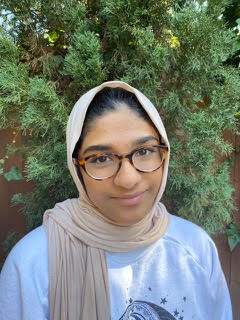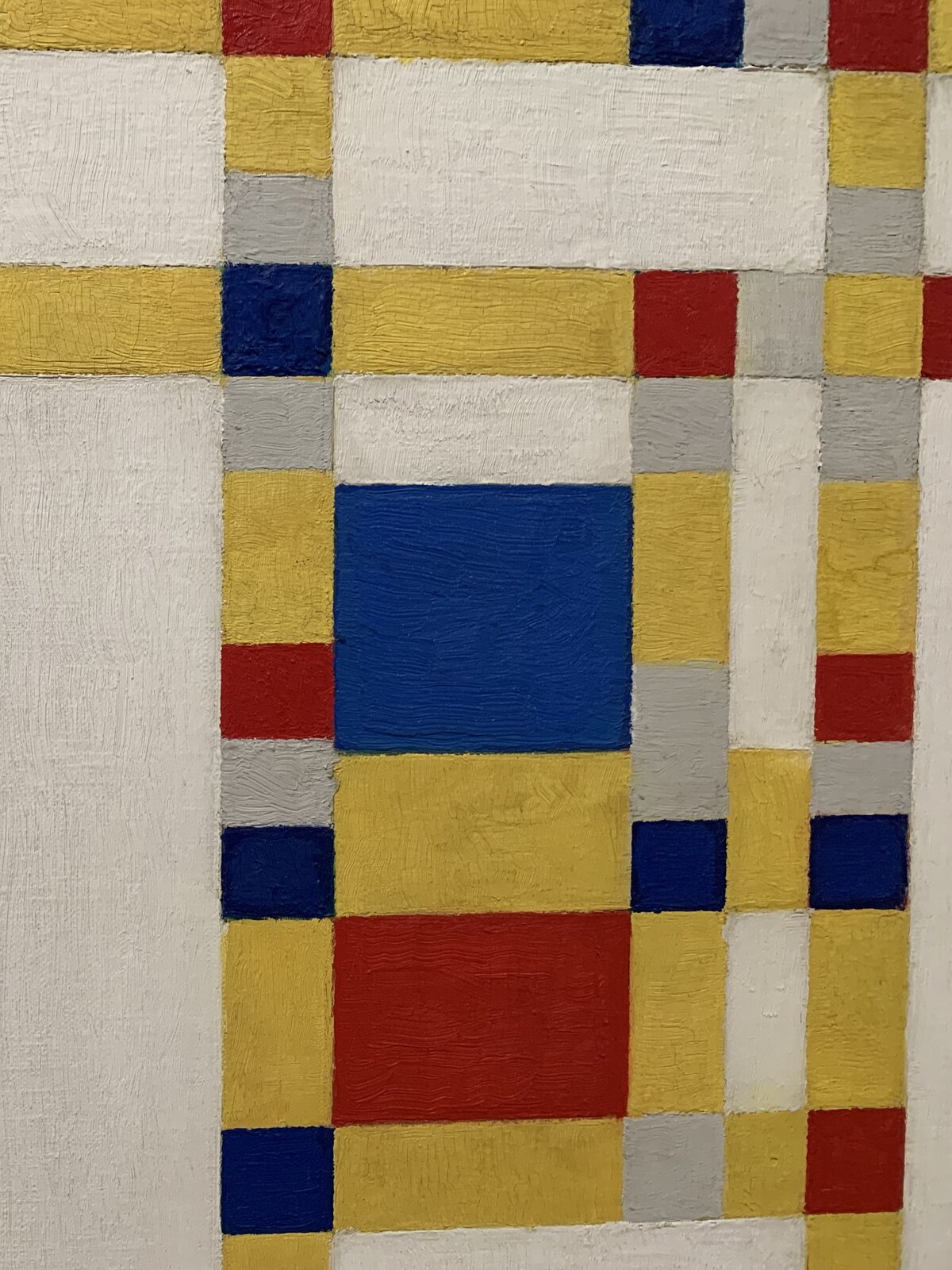[av_hr class=’custom’ height=’50’ shadow=’no-shadow’ position=’center’ custom_border=’av-border-fat’ custom_width=’100%’ custom_border_color=’#8f2f66′ custom_margin_top=’30px’ custom_margin_bottom=’30px’ icon_select=’no’ custom_icon_color=” icon=’ue808′ font=’entypo-fontello’ admin_preview_bg=”]
I tighten my body on the rain-softened sidewalk outside our home, waiting for my mother to pick me up and drive me to school. The wide street in front of me is quiet, covered in a thin layer of fog; there are no cars passing by this early in the morning. The silence almost feels holy.
*
I want to be with my people, to rest in the holiest place I know. In the mosque, young girls, half-lidded from the warmth of our bodies held close, trace the Quran on the roof of their mouths for the first time. Widows in the corner huddle in circles, their white burkas flowing, as they weave their grief into songs. The breaths of a thousand Islamic prayers submit to the blue-patterned rug, the muezzin’s sermons peeling open—his guttural Arabic baritone ringing, this ripened sustenance.
*
I catch sight of a boy who looks around my age jogging around the block, his hair platinum blonde, shining as a knife. When he passes the sidewalk in front of my neighbor’s house, he stops to watch me, my knees pressed into my chest, arms wrapped around them. The boy sits next to me here, on the sidewalk in front of my house, right on top of the hair that has just fallen out of my hijab. His green eyes lock with my startled ones. Thighs pressing into mine, he takes my face in his meaty, creased hands and brings it up to his lips.
“All covered up, aren’t you? Well, that’s okay. I like my girls exotic,” he murmurs into my mouth, his breath hot, thick with the scent of hamburgers, cologne, sweat. A smattering of his prickly facial hair rubs against my face. He palms my hijab, two of his fingers grabbing the edges of the scarf, as if given permission. My body, hollow, a guava emptied of pink flesh, throat dry.
Before, all I wanted was a body close to mine. But this stranger folds our hips together, trespassing both my body and the property of our sidewalk. This is different from the warmth I am searching for. This is hunger, only pressurized into his body heat—the way his mouth rubs like chafing wires around baby, sweetheart.
*
My mother told me about these men, their violence, how they take off our hijabs, find so many ways to invade our bodies. Even desire is a form of violence. If she was with me now, she would clasp my palms, so I could feel her hardened calluses between us like the lands she once crossed barefoot, holding only an extra hijab and coconut milk that spoiled in the American sun. I wish I could have held my mother’s hand on her journey.
When Amma, my mother, had arrived, she touched her mouth to the valleys of hot dust, trying to hold this country as a second mouth. A pregnant second passed and then a man ripped the hijab off her head. Get up, you terrorist he had screamed, slapping her mouth, which was already burnt by the land she worshipped. Her hijab was no longer an embrace, a source of protection, only the propellant to a white man’s anger. The man’s hands tightened around the gun under his belt, a silent threat. This is what entitlement looks like: a white man flushed hard red like the wet mouth of a cherry, body carved into a bowl.
*
On the sidewalk outside my home, the boy picks me up like a brown Barbie doll, hungry for something exotic. Entitled enough that he thinks he can have me, claim my body as a country.
*
When she used to braid my hair, my mother sat with my sister and I, back curling into the shower door, as she told us stories on how she survived during the war against her people. When the harvest emptied, my mother would leave her family’s doorless thatched hut. The walls were thin, made of dirt so soft she could feel it move under her palms, the floor just a layer of brown dust. Melting under monsoon rains, the shape of the only room was uneven. Amma would squeeze her eyes shut and swallow a swollen guava rolling in the middle of the dirt street—the flesh of the abandoned fruit bitter and half-decayed.
For young Amma, this was hunger: trying to hold something in her body that was already crumbling, something that she knew she could not keep in her stomach. Later, Amma would hold her stillborns daughters like this too, praying for a womb that would not be a graveyard. And this became our dark bloodline, thick and rough as our hair: women bearing fattened, oiled wires of craving, baring the harsh flavor of loss.
*
I will never forget what aching feels like, yearning to be American so much it drains the pulp from my body. On the first day of sixth grade, Ms. Williams stumbled over my last name, shifting her glasses further down her nose to see the mass of letters clumping together. She butchered the vowels into split, weakened seeds and tossed them haphazardly into my unassuming dark hands. I’ll never forget that name, eh? she had remarked, voice burning beneath the rigid surface. High-pitched giggles had filled the room. Bodies turned and gaped at my crimson hijab, at my face, bright, a mango just beginning to rot. At that moment, my tongue was no longer a muscle, just a lump of congealed heritage.
I began to wear my words like a backpack, a sprawled weight. From then on, I became an instinct, a trembling heart, a pounding gut, immobilized by my hijab, by my Tamil accent, by skin oiled dark in the daylight. America tore the flag that my mother buried in my body piece by piece. This was the day I realized that there was nothing left in me but tattered threads hanging haggard.
*
Pressed between the boy’s body and the San Franciscan sky curling gray fists, I begin to understand: the boy and I are both hungry. Both yearning for so many things all at once. And in this moment that lays open like a stretched palm, we both hope for something small and trembling. He wants my body, and I want my mother.
[av_hr class=’custom’ height=’50’ shadow=’no-shadow’ position=’center’ custom_border=’av-border-fat’ custom_width=’100%’ custom_border_color=’#8f2f66′ custom_margin_top=’30px’ custom_margin_bottom=’30px’ icon_select=’no’ custom_icon_color=” icon=’ue808′ font=’entypo-fontello’ admin_preview_bg=”]
[av_one_half first]

[/av_one_half]
[av_one_half]Sarah Fathima Mohammed is a brown, Muslim-American writer from the San Francisco Bay Area. Her work appears or is forthcoming in Frontier Poetry, wildness, SOFTBLOW, PANK, diode, and elsewhere. She has been recognized by the Poetry Society of the UK, Claudia Ann Seaman Awards, and Hollins University, among others.
[/av_one_half]
[av_hr class=’custom’ height=’50’ shadow=’no-shadow’ position=’center’ custom_border=’av-border-fat’ custom_width=’100%’ custom_border_color=’#8f2f66′ custom_margin_top=’30px’ custom_margin_bottom=’30px’ icon_select=’no’ custom_icon_color=” icon=’ue808′ font=’entypo-fontello’ admin_preview_bg=”]
